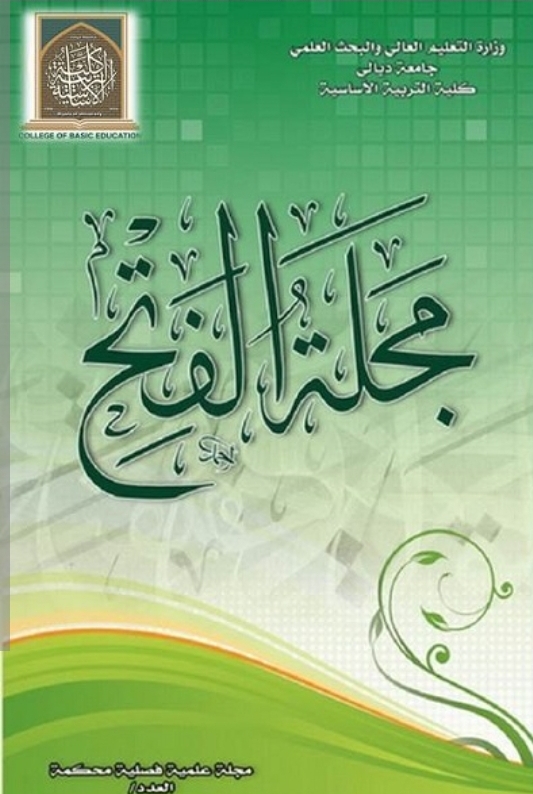فاعلیة إستراتیجیة مقترحة في القدرة على حل المسائل الكیمیائیة لدى طلاب الصف السادس العلمي
الملخص
Abstractإن التطور العلمي والتكنولوجي المتسارع في عالمنا الجديد يحتم على التربية تغييراَ جوهرياَ في فلسفتها وبشكل خاص ما يتعلق بالتفكير العلمي ومهاراته والتأكيد على العمليات العقلية التي جوهرها توظيف الطرائق والإستراتيجيات التدريسية التي تؤكد على الاستكشاف والاستقصاء وحل المشكلات وعمليات العلم.
والمتطلع على محتوى مادة الكيمياء للصفوف السادسة العلمية يرى أن هنالك عملية تجزئة للمفاهيم ضمن الفصل الواحد أو في الفصول ذات العلاقة يبعضها في ظل تنظيم المحتوى الشائع وكذا الحال مع الأسئلة الرياضية في نهاية فصول الكتاب.
في حين ترى إن أسئلة الامتحانات الوزارية أو التي تعد من لدن مدرسي المادة الدراسية إنها أسئلة مركبة تجمع بين مفاهيم الفصل الواحد أو الفصول ذات العلاقة، ويتطلب حلها مهارات عقلية عليا وهذا يستوجب من المتعلم التدريب على تلك المهارات العقلية واكتسابها في ظل إستراتيجية واضحة تعينه في ذلك تقوم على أساس علمي سليم تجعله قادراً على تحليل الأسئلة وتحديد المعطيات والمطالب وانتقاء القوانين ذات العلاقة بحل المسائل.والربط بينها ومن ثم تطبيقها والوصول إلى حل المسالة.
ومما يؤيد الحاجة لذلك كثرة نسبة الرسوب في الامتحانات الوزارية في هذه المادة الدراسية من جهة وتدني مستويات تحصيل الطلبة بشكل عام من جهة أخرى، فالتحصيل وعلى وفق ما هو شائع في مدارسنا مؤشر لقياس قدرة الطالب على التفكير وممارسة العمليات العقلية ومدى اكتسابه للمهارات التي تتضمنها تلك الممارسات في ظل الأسئلة الإمتحانية وبشكل خاص في الامتحانات الوزارية.
ففي هذا الصدد كشفت نتائج دراسة "صاحب" (2001) عن تقصي أسباب انخفاض نسبة النجاح في مادة الكيمياء للصف السادس العلمي في الامتحانات الوزارية لعام (1999 -2000) في العراق أن من بين الأسباب ضعف في تنظيم المحتوى وضعف الارتباط بين معلوماتها وضعف قدرة الطلبة على حل المسائل الكيميائية.
التنزيلات
منشور
كيفية الاقتباس
إصدار
القسم
الرخصة

هذا العمل مرخص بموجب Creative Commons Attribution 4.0 International License.
حقوق النشر والترخيص
تطبق مجلة الفتح للبحوث التربوية والنفسية ترخيص CC BY (ترخيص Creative Commons Attribution 4.0 International). يسمح هذا الترخيص للمؤلفين بالاحتفاظ بملكية حقوق الطبع والنشر لأوراقهم. لكن هذا الترخيص يسمح لأي مستخدم بتنزيل المقالة وطباعتها واستخراجها وإعادة استخدامها وأرشفتها وتوزيعها ، طالما تم منح الائتمان المناسب للمؤلفين ومصدر العمل. يضمن الترخيص أن المقالة ستكون متاحة على نطاق واسع بقدر الإمكان وأن المقالة يمكن تضمينها في أي أرشيف علمي.
لمزيد من المعلومات، يرجى متابعة الرابط: https://creativecommons.org/licenses/by/4.0/.



